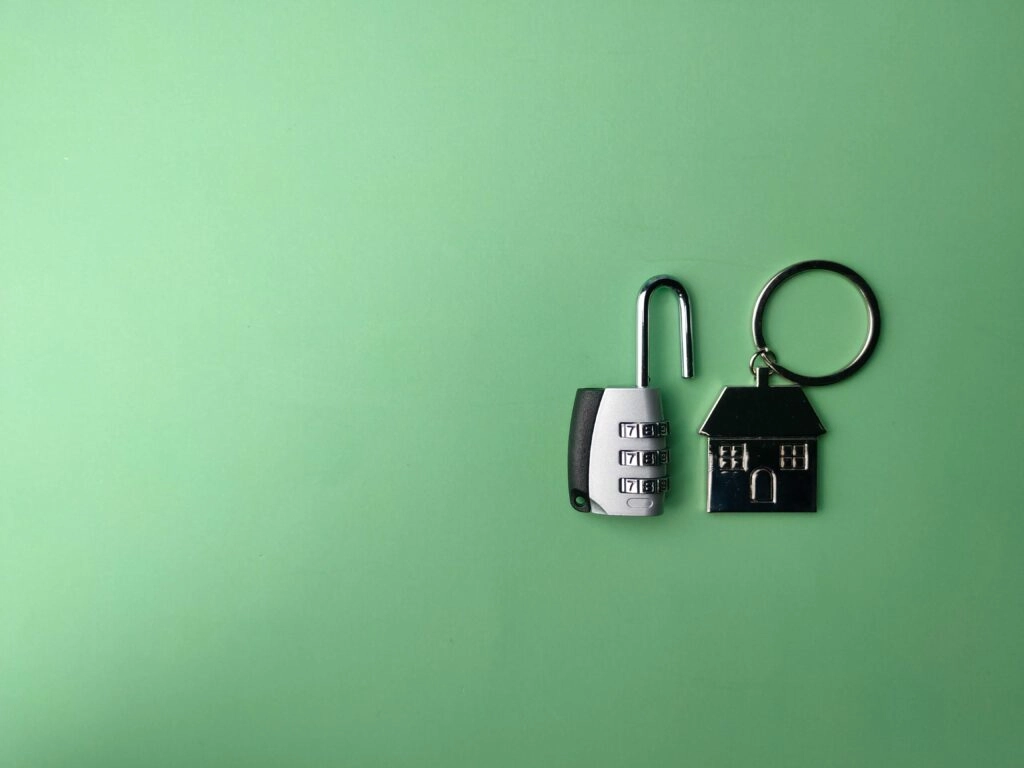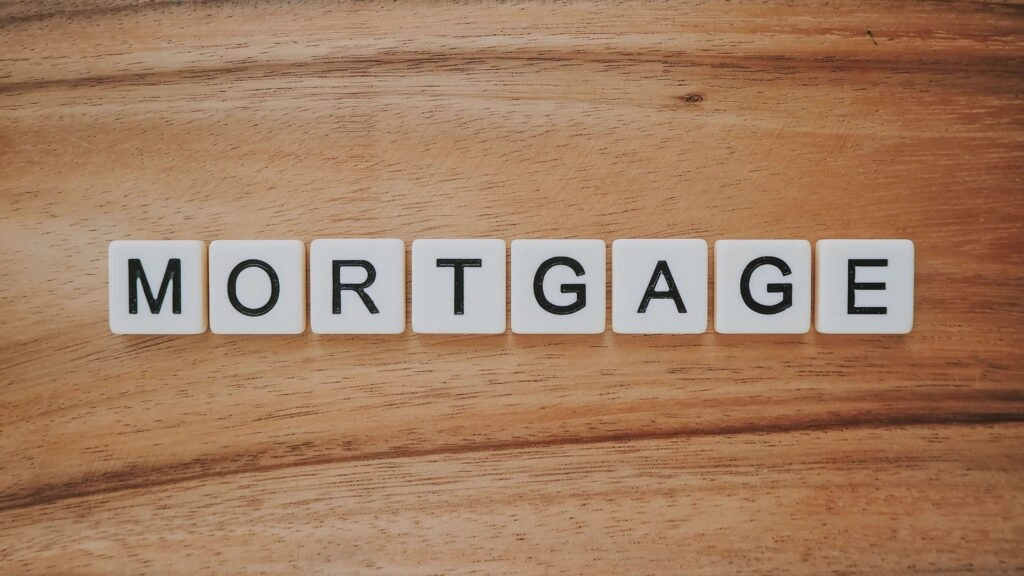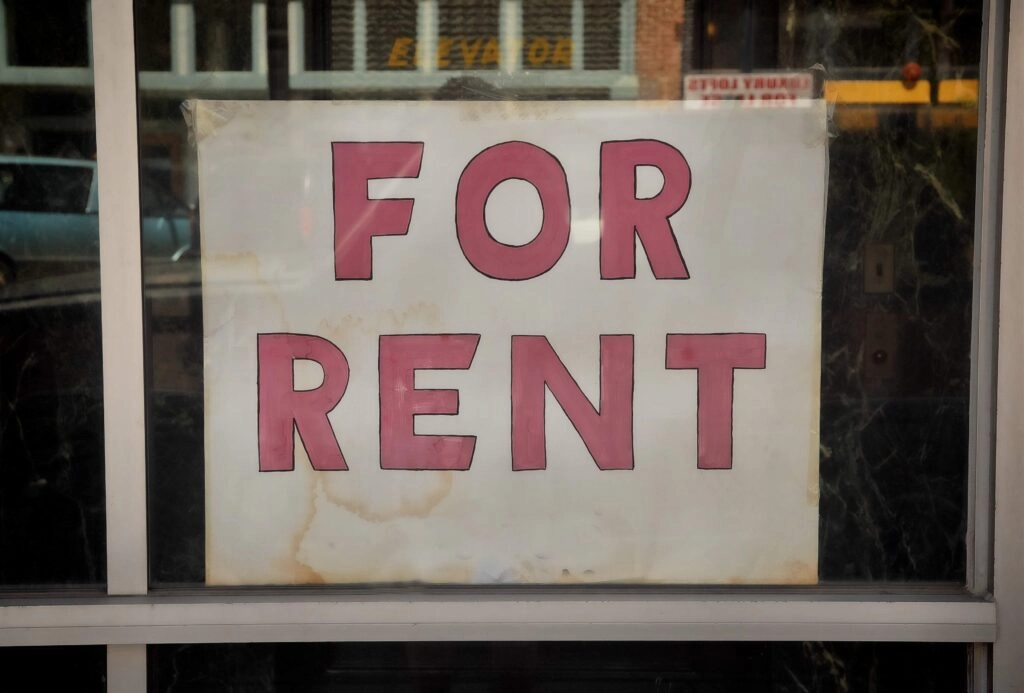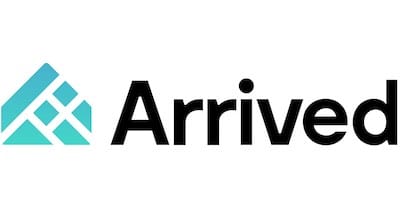Everyone looks forward to living mortgage free and finally fully owning a home someday; however, homeownership seems far out of reach for many people. Among the top obstacles is the high buying price.
Studies from the National Association of Realtors show that home prices have increased nearly 20% in recent years. In such cases, it makes sense to apply for a mortgage as it could potentially help speed up the homeownership process.
A typical mortgage term is 30 years. While experts refer to mortgages as good debt, the financial obligations of the mortgage payment can be stressful to most homeowners.
In this case, paying off a mortgage sooner is a wise option. Also, it can knock years off your mortgage term and save you a large chunk of cash.
Want to achieve financial freedom and live mortgage free? Below are the top tips on how to live mortgage free in 2024 that every homeowner should try.
Benefits of Living Mortgage Free
While there are so many opinions on whether or not one should pay their mortgage early, it all goes down to personal preference. But it all comes down to one goal: to start living mortgage free and spend the rest of our lives without financial worries.
If you are still skeptical about adding those few extra bucks to your mortgage payment, here are some benefits as to why you should already start thinking about living mortgage free:
Peace of Mind with no Mortgage Payment
For some, the substantial financial obligation of mortgages can be overwhelming. Debt can harm your mental health.
For this reason, it’s natural for most homeowners to want to clear off their mortgage as soon as possible to eliminate its constant presence and finally get that opportunity to live mortgage free.
Ability to Save More Money
Debt makes you feel like you’ll never make any progress, especially when you have high-interest debt.
Fortunately, paying off your mortgage could save you substantial money in total interest over the years. Later, you’ll have fewer payments to make, thus leading to more savings and the opportunity of living mortgage free.
Ability to Invest More
Since you will have fewer payments to make in the long run, you could invest extra funds with the expectation of getting a good return. You can invest in real estate or the stock market. You could learn about how to invest in art or other alternative assets. However, the success of your intended investment depends on your investment choice.

Ability to Go on Vacation More Often
If vacations are essential to you and your loved ones, paying off your mortgage sooner will be a wise financial move. With cleared debt, you will have some extra cash to get away and enjoy life a bit more.
Reach Financial Freedom
Assuming you have no other debt to pay up, clearing your mortgage sooner can set you up for financial freedom and, over time, and help you reach your financial goals.
Whether you have always wanted to own a business or travel, having some extra cash in your account can help you afford a good lifestyle for yourself and your family.
How to Live Mortgage Free
Ready to experience how living mortgage free feels? Check and try out the tips below to finally gain that financial freedom you deserve.
1. Make Extra Payments on Your Mortgage Principal Every Month
According to Investopedia, a monthly mortgage payment is a collection of four factors: principal, interest, real estate taxes, and insurance. When considering making extra principal payments, it’s essential to understand what principal is and how, together with other factors, it translates to a monthly mortgage payment.
Simply put, the principal is the total amount borrowed. On the other hand, interest is what the lender charges you for lending you money. Real estate tax is the value of the property, and insurance is something that provides protection should an unforeseeable event occurs.

The majority of homeowners pay their property taxes along with their mortgage payment. The mortgage lender then deposits the money into an escrow account.
When the property taxes are due, the lender makes the payment on your behalf.
Lastly, a mortgage insurance policy is separate from your mortgage loan. This policy protects the mortgage lender should the borrower default on the loan.
You may also be required to pay for homeowner insurance to protect you from unforeseen events, but we know these hassles won't compare to our end goal: to live mortgage free.
Why Paying Extra Principal Saves You Money
Additional principal payments are also known as principal-only mortgage payments.
According to the Consumer Financial Protection Bureau, only a portion of your payment goes to your mortgage principal. The lender portions the rest of the payment to cover the interest.
As a borrower, you must review your mortgage amortization to get a clear picture of how much your monthly mortgage payment covers the interest and principal.
An additional principal payment to supplement your mortgage principal exceeds the monthly payment. As a result, you’ll automatically save more in interest and reduce the number of monthly payments over the mortgage term.
Over time, you get to realize that dream, to live mortgage free!
How to Make an Additional Principal Payment
Making a single extra annual payment towards your mortgage’s principal can help slash the time it takes to clear your mortgage loan and help you live mortgage free.
This method is an ideal option for homeowners who receive:
- An end-of-year bonus from their employer
- An annual tax refund
- A yearly monetary gift from a loved one
1. Make monthly principal payments
While making large annual payments may seem intimidating to most homeowners, they can still reap similar benefits through monthly contributions. This method works best for people with passive incomes.
2. Bi-weekly principal payment
Bi-weekly payment is another popular strategy to pay off the principal faster. You are required to pay the lender your monthly payment every two weeks.
As a result, you end up paying double your month’s worth of payment. This strategy best suits borrowers with multiple sources of income and those who want to live mortgage free in the soonest time possible.
3. Practice a combination of methods
Most mortgage lenders don’t limit borrowers to one payment. They present homeowners with various payment methods to clear down their principal.
This way, borrowers can make payments whenever possible due to income and expenses fluctuation.
For long-term benefits, extra payment requires discipline and commitment. You will have to reject many mainstream ways of doing things.
However, if you are cash trapped for some reason, making additional principal payments might not be best suited for you.
Pro Tip: It is essential to notify your loan servicer that any extra payment you make should go to your principal, not the interest.

2. Refinance Your Mortgage to a Lower Interest Rate
“A refinance refers to the process of revising and replacing the terms of an existing credit agreement, usually as it relates to a loan or mortgage. When a business or an individual decides to refinance a credit obligation, they effectively seek to make favorable changes to their interest rate, payment schedule, and/or other terms outlined in their contract. If approved, the borrower gets a new contract that takes the place of the original agreement.”
Refinancing a mortgage means getting a new loan by paying off an existing one. Homeowners refinance for various reasons such as:
- To secure a lower interest rate
- To reduce the mortgage term
- To shift from an adjustable mortgage rate to a fixed-rate mortgage
If you are looking to refinance your mortgage to secure lower interest rates and eventually live mortgage free, here is how it works and the options that might be ideal for you.
How does refinancing work?
The refinancing process is similar to the process of getting a mortgage. Typically, you start by comparing rates among various loan servicers.
The goal is usually to see which lender has the best to offer.
In recent years, most lenders have tightened their criteria for loan approval.
To be eligible for a low-interest rate mortgage, you need a 760 credit score or higher.
It is also possible for borrowers with low credit scores to get approved for a new loan but with higher interest rates.
Simply put, your credit valuation is crucial for getting loans with favorable terms, including low mortgage interest rates.
So, now that you basically know how refinancing works, it's important for you now to better understand the types of refinancing so you get to live mortgage free in the soonest time possible!

Types of mortgage refinancing
Since there is no one–size–fits–all solution when considering different buyers, there is a variety of mortgage refinancing to help you live mortgage free.
- Rate and term refinancing: With this type, you can change your current loan terms and replace them with more favorable terms.
- Cash-out refinancing: This option allows the borrower to convert home equity into money.
- Cash in refinancing: This option helps you put a sizeable amount of money into a home to build home equity. It can help you secure favorable terms because it is a safer investment from a lender's perspective.
6 key considerations to review before applying for a mortgage refinance
- Know your home equity. Your home value is a crucial determinant for refinancing eligibility. The higher the current value, the better.
- Your reason for refinancing. Always ensure that each reason’s pros outweigh the cons.
- Know your credit score. Borrowers with credit scores higher than 700 usually get better terms and interest rates than those with a lower credit score.
- Know your debt-income ratio. Usually, your current debt-to-income balance should be lower than 43% to get approved for a mortgage refinance.
- Your income status. If your income has dropped since your first mortgage application, you might have a rough refinancing process and not be able to live mortgage free as soon as you would want to.
- Interest rates on the new loan. Subject to the market, interest rates frequently change. Refinancing would not be worthwhile if they are currently on the rise since your previous mortgage application.
Consider a Shorter Loan Term
Any loan paid back in less than a decade is considered short-term. Usually, short-term loans come with lower interest rates because the lender spreads the loan over a limited period.
Refinancing to a shorter loan term may be perfect if you aim to finish paying off your mortgage early and finally be able to live mortgage free with the slightest loan interest.

Benefits of refinancing into a shorter loan term
- Interest saving. Despite the higher monthly payments, you get to save on interest through accelerated amortization.
- Capitalize on your mortgage free years. Once you pay off your mortgage, you can redirect the funds to other valuable things.
Make Bi-weekly Mortgage Payments Instead of Monthly Payments
Typically, the mortgage payment structure is monthly. Switching to a biweekly mortgage means you’ll make payments every two weeks and get to live mortgage free sooner than you can imagine.
While you can reap benefits from this method, how your lender handles your biweekly contributions determines the expected benefits' success.
Therefore, setting up a clear biweekly payment plan with your mortgage lender is essential.
Advantages and disadvantages of biweekly mortgage payment
- It shortens your loan repayment term
- By lowering the principal balance, you end up paying less interest on the loan
- Budgeting your money becomes more manageable, especially if your employer pays you every other week
- It helps you build home equity
- Most homeowners have fewer funds for other priorities
- This method does not impact your credit score since the lender reports on time irrespective of the number of times you have made monthly payments.
How to plan mortgage payments biweekly
Before making the switch, always consult with your servicer about how to go with the process.
If the lender requires no additional charges or penalties, you can carry on with establishing a biweekly payment plan to live mortgage free as early as you can.
Also, to get full benefits from such a setup, your lender should always apply the additional contributions toward your principal, not the interest.
How to know if biweekly payments are for you
Before considering a biweekly mortgage payment, you must assess your financial status. If it’s practicable with the payment plan and your budget, then biweekly payment is proper for you.
3. Pay Off Your Mortgage Principal Using a Home Equity Line of Credit
One of the homeownership benefits is the ability to build up equity over time. With your home equity, the difference between your mortgage balance and your home value, you can secure funds in the form of a home equity line of credit. In this case, your home equity acts as collateral.

What is a Home Equity Line of Credit (HELOC), and how does it work?
A home equity line of credit, or HELOC, is a home equity loan product that works like a credit card. It allows you to draw funds whenever you need them. The interest rates are usually flexible making them ideal for many people who need funds to clear an existing debt.
However, this line of credit requires borrowers to stay disciplined when taking out and repaying the fund.
A credit card allows borrowers to have continued access to a line of credit. They can access funds up to a credit limit set by the lender and later pay back with interest. HELOC is no different.
Credit limits are selected based on several factors such as the borrower’s income, their on-time payment history, credit score, and other types of credits the borrower might have.
Once the lender approves your eligibility, you can access the money within a fixed time known as the draw period.
The draw period can span ten years to 30 years. Once your draw period ends, you may renew your HALOC, which usually means you take a new HALOC to pay off the old one. Alternatively, you can refinance the outstanding balance to start and live mortgage free.
4. Sell Your Home and Use the Proceeds to Pay Off Your Mortgage
Usually, most homeowners with a 30 year mortgage term don’t end up staying in their homes for that long.
For many, they sell their home to clear off their mortgage balance and live mortgage free. Before considering selling your home, knowing your mortgage balance is essential to determine the right selling price.
5. Get a Reliable Roommate
At times, living mortgage free may mean asking for help in terms of dividing payments — and this would mean getting a roommate to share your dues. However, getting a roommate can be a challenging situation.
On the flip side, though, this can be an excellent option for homeowners looking forward to clearing their mortgage sooner. Having someone help you clear off your mortgage early can make a big difference, and they could even help you get extra money while they're at it!

Things to consider before getting a roommate
While getting a roommate can help you save on extra cash, it is a decision that could impact your life in many ways, one of them being able to live mortgage free. Some things you may want to consider before having someone move in with you:
- The potential roommate’s personality. It’s essential to consider the kind of personality you’d like your roommate to have. While you cannot choose a flawless roommate, you must consider what you can and cannot tolerate in a person. Shared interests make cohabiting enjoyable and peaceful.
- Financial division. Establishing the rate you expect your roommate to pay from the beginning is essential for the homeowner. The goal is to live mortgage free, and earlier you get clear on how you intend to handle groceries and other expenses, the less hassle you will have later.
- Chore division. Messiness is a shared space that can be uncomfortable. When it comes to keeping your home organized and neat, it’s essential to be clear on how you intend to split chores from the beginning. A chore chart is handy in such instances and helps you live harmoniously with your roommate.
- Guest. You may want to ask your potential roommate about their house guests and lovers. Establishing healthy and clear boundaries on how long the guests are welcome to stay could make your cohabiting relationship successful.
6. Bigger Does NOT Always Mean Better; Downsize Your Home
When owning a home, bigger isn’t always the best.
In most cases, less is more. Most homeowners downsize for different reasons, but paying debt to live mortgage free is the most common.
If you wish to start living mortgage free as soon as possible, you can sell off your home and move to a smaller one if your current home has high equity.
A successful downsize pays off your debt by taking on a smaller one, and also, you might get extra money to invest in or clear other obligations.

Potential downsizing challenges
Taking this route might not be for everyone. While it might seem simple, homeowners might run into a few challenges along the way.
- Your home’s worth might be below your expectation
- You need a top credit score to get approved for a new house while you are still obligated to pay the first one
- Failing to acknowledge the closing costs when buying your next home
7. Invest in a Rental Home or Property
Investing in rental property to live mortgage free can be rewarding if you have the funds available, which is particularly important if you want to start to live mortgage free.
If you are a homeowner looking forward to generating a passive income, rental property investment makes an excellent choice.
However, like any business adventure, real estate investment requires proper planning.
For most homeowners, investing in real estate ensures a steady flow of money every month. While homeowners can channel the funds into other beneficial things, most use the recurring income to pay off their mortgage loans.

Things to put in mind when considering to invest in a rental home or property
Although rental property can be a wise investment, it might not be appropriate for everyone. With that in mind, there are essential things you should consider before venturing through this path.
- Location of the property. The property's proximity to amenities for residential properties and closeness to transport hubs and warehouses for commercial properties
- The expected flow of money. You should always aim for a positive cash flow
- Your credit score. A higher credit score qualifies you for a loan with favorable terms
- The real estate market. The real estate market fluctuates a lot. Doing some research to stay up to date with the market trends could make the rental estate a sound investment
8. Start a Business
Starting a business comes with the risk of failing, but on the other side of the coin are success and huge streams of additional income, leading to an opportunity to live mortgage free.
This might not be the best option for you if you are too reliant on your current income to just barely be able to afford the basic necessities of living, or if you feel like you will not be able to give your 100% to catering to customer needs and inquiries around the clock.
Semrush noted down a few statistics on small businesses in the United States and around the world:
“1) As of 2020, there were 31.7 million SMBs in the U.S (99.9% of all businesses), 2) Depending on the industry, a small business can have 250 to 1,500 employees, 3) Out of the 31.7 million small businesses, 3.7 million are microbusinesses with one to nine employees, 4) Annually, small businesses create 1.5 million jobs and account for 64% of all new jobs in the U.S., 5) There are 582 million entrepreneurs in the world, 6) 15 million Americans work full-time for their own business, 7) Small businesses in America occupy between 30% and 50% of all commercial space, an estimated 20 billion to 34 billion square feet, and 8) The number of small businesses in the U.S. has doubled since 1982.”
Regardless of your enthusiasm to start a business, the undeniable fact is that when a business is given enough attention and managed using the right approach and strategies, it should be able to give you not just a truly rewarding experience, but also that sweet income you can use to pay what you owe, and to eventually live mortgage free!
However, if you think that starting a business really isn't a good fit for your personality or way of life, you could try your luck on a part-time job.
9. Get a Part-time Job
Today, building multiple sources of income has become a necessity rather than a luxury. It is mainly due to the financial risk of relying upon a single job. Multiple jobs ensure a continuous flow of money even when one source of income is lost.
Beyond the apparent boost of income, many people, especially homeowners, build multiple income streams to pay down a mortgage.
By making extra mortgage payments, homeowners set themselves up for financial freedom.
Also, as long as you can strike a balance between your sources of income, there is no limit to the number of income streams you should have. You can find ways to work in the evenings or on the weekends with online jobs or gig economy jobs.
Do keep in mind, though, that not all employers would be impressed that you are able to handle multiple jobs at the same time. The issue comes down to your dedication to one particular role and company.
Some employers might think you are compromising the quality of your work for one company while ensuring only the best for another!
As a result, in your quest to try and live mortgage free, trying to seem hardworking and enthusiastic to serve may result to a negative overview of what you want to prioritize.

10. Hire a Real Estate Agent
As tempting as it might be, selling your home alone could cost you more than you would have spent hiring an agent. Real estate agents ensure a smooth home selling process by:
- Presenting better negotiation skills that could get you more money than you would by yourself
- In case of any problem during the home selling process, the experts will have the job done for you
- Since agents are familiar with the paperwork, they can help you avoid unforeseen legal complications
- Real estate agents allow you to set competitive selling prices for your property
- Agents are trained to handle matters relating to real estate and the legal processed involved in it
- Agents can prevent the overlooking of a particular matter, as they usually know how the process and the market works
- Real estate agents have things like networks and connections to smoothen up the process
11. Consider a Loan Modification
Loan modification involves changing the terms of an existing loan by the lender. Your mortgage lender may reduce the interest rate of your mortgage or extend the length of your mortgage payment.
Usually, the aim is to make your mortgage payment more affordable.
However, the mortgage lender does not approve reductions on the principal during the modification process.

So do you think this would be a good fit for you? If you wish to consider a loan modification hoping that it would lead to a mortgage free life, continue reading below:
How to get a loan modification
You must first get an application from your mortgage lender for a loan modification. In the application, the lender requires you to give details about:
- Your earnings
- Bank statements
- Your tax returns
- An affidavit
- A comprehensive questionnaire about Personal, mortgage, and property information
The relevance of the information that you provide determines your eligibility for a loan modification. But once you meet the required guidelines, the process is relatively smooth, and you can do it yourself.
However, in some instances, like having difficulties understanding the process, it’s worthwhile for you to seek help from a certified attorney rather than hiring a loan modification company, especially if you want to live mortgage free. Here is why:
- Most loan modification companies are scammers
- They charge a lot for their services
- Most of the time, they fail to respond to a request from the lender about useful missing information
Final Take on How to Live Mortgage Free
For sure, everyone would want to be debt free at the earliest possible point of their lives. Although it won't be easy, there are actually a myriad of ways to play the game and finally be able to live mortgage free, even if it would mean seeking the help of friends, family members, or even strangers to cut the costs.
For those who have the budget to clear off their mortgages early, consider investing in other sources of money for a chance to double or even triple your earnings and gain financial freedom through passive income, so you get to enjoy life at its best and live mortgage free, worry free!
While considering the above tips to finally be able to live mortgage free, you must involve a financial advisor in every financial decision. They can be in handy in providing valuable insight and guidance.
Also, as you look forward to living mortgage free, it’s crucial to remember that the above tactics may not suit everyone. This is not something with a one-size-fits-all solution. What works for you best might have a different effect on someone else.
So, imagine living mortgage free… no. Live mortgage free! Claim that you will, while following the tips we mentioned above. We look forward to what you ca achieve by staying Smart!
Do you have any other tips to help others live mortgage free? Let us know in the comments section below — and you might get featured in one of our future posts!
Arrived lets you invest in residential real estate and vacation rentals with only $100. It's an excellent option for anyone looking to earn passive income with rental units. And the platform is available to non-accredited investors.
